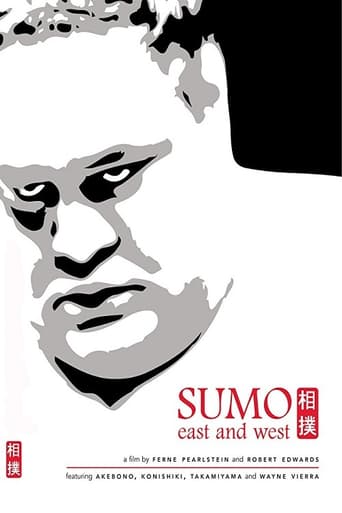MartinHafer
This is a documentary about the sport of sumo--explaining it to non-Japanese viewers--though it sure helps if you have at least a basic understanding and love of the sport. The film also focuses on the sudden inroads made by American (particularly Hawaiian) wrestlers in sumo as well as the culture-shock experienced by these athletes. Additionally, amateur sumo is explored--a lot....an awful lot. The film consisted of lots and lot of interviews as well as location shoots in Japan and Hawaii. It's obvious that the folks who did this had some money and love for the sport. I loved it mostly because I have watched a lot of sumo (for an American) and understand the rankings and pageantry. However, for the uninitiated, it may not be the very best introduction--as the National Geographic special about sumo was more geared towards explaining the basics. For sumo lovers, I'd give this a 10.By the way, although the film shows quite a shots of Akebono (the first non-Japanese grand champion), before the film was released in 2003, another American (from American Samoa) soon made it to Yokozuna (grand champion), as Musashimaru was also advanced to this hallowed rank. This was omitted because the film was actually mostly shot about five years before its release date. In recent years, HUGE strides have been made by non-Hawaiian foreigners in sumo--with the Mongolians particularly excelling, though eastern Europeans (Russians, Estonians and Bulgarians) gaining the higher ranks. In fact, they are so common and such a force that the Japanese are worried that they are on the verge of completely losing their sport to foreigners--especially since less and less natives are willing to undergo the rigorous training. Because of this, it would be interesting to see an updated version of this film--as at seven years old, this film is a bit out of date.
